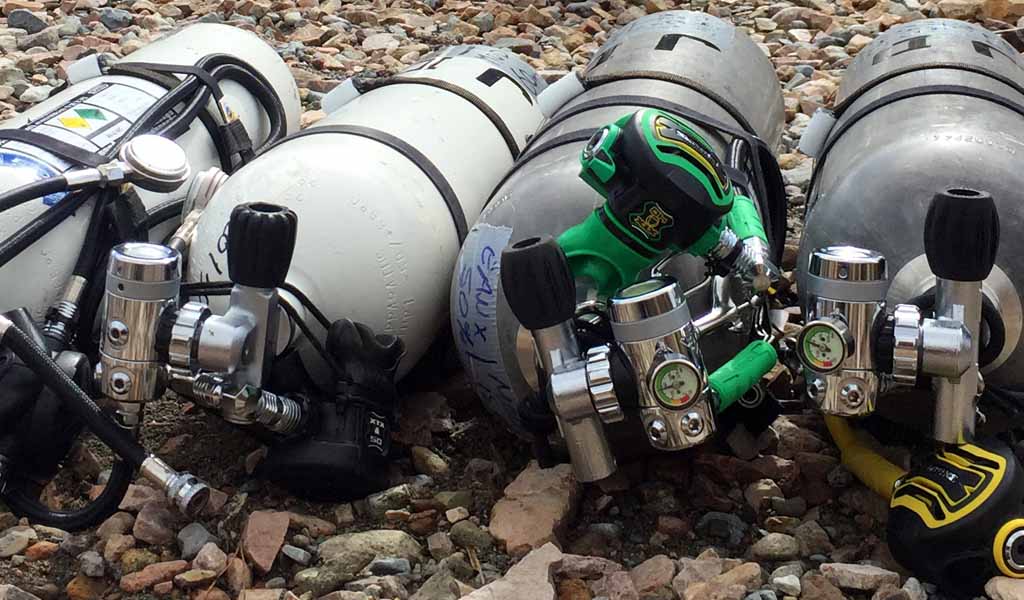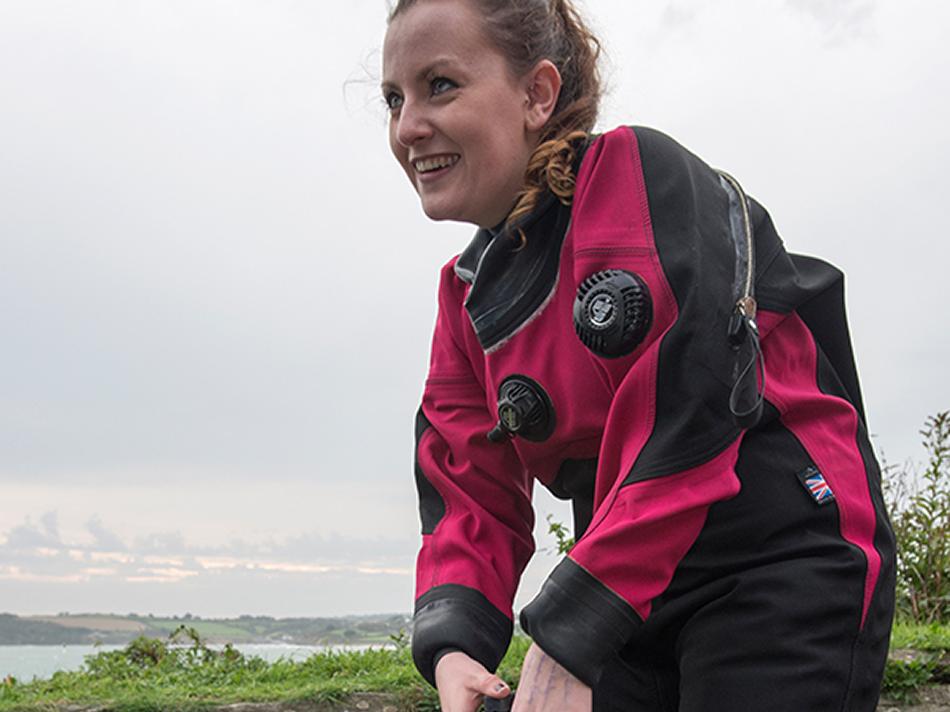
BSAC's Safety and Training Manager, Jim Watson, examines some of the issues that could have an impact on little used or badly stored dive equipment throughout the low season.
Diving equipment is designed to cope with the rigours of the marine environment and to keep us alive and comfortable in that environment. Consequently, the best way to prepare it for winter is to plan to continue diving over the cooler months of the year.
There are many benefits to continuing to dive including keeping yourself active and minimising any decline in skills levels, keeping equipment in good working order and continuing to enjoy our aquatic environment and beat the winter blues. However, if you do decide to rest your fins for the winter then some simple steps when storing your equipment can minimise problems when you and your kit return from hibernation.
Care and storage
If you decide to store your equipment for a period of time, make sure it is all thoroughly washed, and better still soaked, in fresh clean water and then allowed to air dry. Storage should be in a cool (central heating is not the best, especially for drysuit seals) dry environment. Check all equipment for signs of wear and tear before storing and replace if necessary (it won’t improve during storage). Remember that your kit cost you a lot to assemble and so keeping it secure is important and whilst a locked garage or shed may seem ideal make sure your house contents insurance covers storage of valuable equipment in these locations. Some specific considerations:
- Regulators - Hoses should ideally be stored without tight bends or any tension on the connections.
- Cylinders - Should be stored with a residual amount of gas (15-20 bar) if stored for any length of time, check for indications of any accumulation of water inside, which will cause corrosion, by shaking and listening and store upright (the cylinder base has the thickest material) and secure to prevent falling over.
- BC - Disconnect any direct feeds and store separately, rinse internally as well as the outsides and allow to dry before storing.
- Drysuits - After rinsing and drying cover the seals liberally with non-scented talcum powder or other manufacturer recommended protective product. HINT: (from experience) store in a suitable protective case/crate to deter the nesting behaviour of [not so] cute rodents…)
Servicing
Before packing your kit away check if the cylinders may be due for Periodic Inspection and Test (PIAT) before the start of the next diving season. Depending on when this may be due you may need to get them tested soon or in a few months’ time but make sure you don’t miss the renewal date or you may find you need a different test and altered test frequency. If you don’t put in for test immediately set yourself an appropriate reminder that you won’t miss!
Regulators usually require annual servicing to comply with the manufacturers recommendations and so again plan when you want to have this done. However, bear in mind that dive equipment service centres are extremely busy in the run up to a new diving season so make sure you book well in advance and don’t miss a booked appointment to ensure your essential equipment is available when you need it.
It is worthwhile when packing away your equipment that during the checks you make a note of components that are starting to show signs of wear and compile a list of spares you want to obtain before the start of a subsequent diving season.
Returning to diving
If you did decide to take a break over the winter then it is important to take some basic safety measures in returning to activity. Regardless of how well you packed away your equipment you need to check it before starting to dive again. Make sure cylinders are in test, and refilled if they had been stored with residual gas or might have leaked, and recheck nitrox mixes to ensure the labelling is correct for the contents. Check drysuit seals and valves are still sound and not clogged or stuck together. Make sure dive computers are tested before travelling to a dive site and replace or recharge batteries as necessary.
It also makes sense to practice with equipment in a controlled environment before committing to that first dive trip to the coast of the season to avoid unforeseen problems and disappointment in not being able to dive.
Finally don’t ignore that other essential bit of kit, yourself! Keep fit and well and, whilst enjoying the festive season, prepare yourself properly for a new, exciting, season of diving.
Stay safe – dive safe
Jim Watson
Safety and Development Manager


 Author: Jim Watson | Posted 22 Nov 2023
Author: Jim Watson | Posted 22 Nov 2023



